Digital Empowerment, Intelligent Enforcement, CAAI Cloud Forum (Xi'an Station) Was Successfully Held
On August 21, 2021, the "CAAI Cloud Forum (Xi'an Station)" with the theme of "Construction and Transformation of Digital Society" hosted by the Chinese Association for Artificial Intelligence and undertaken by the CAAI Social Computing and Social Intelligence Committee was successfully held online. The forum was chaired by Associate Professor He Li and Professor Zhang Zike. Five distinguished scholars from home and abroad gathered here. They are Academician Alex Pentland, Professor Bian Yanjie, Professor Fu Jianfeng, Professor Zhu Jianhua, Professor Ye Xinyue. Scholars discussed the fundamental, forward-looking, and critical theoretical and methodological issues in between groups. the construction and transformation of the digital society. This cloud forum has accumulated over 210,000 online viewers.
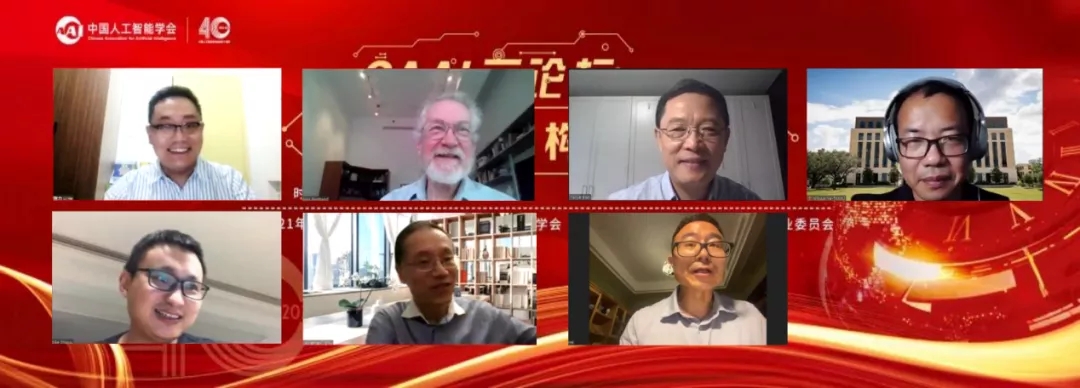
Academician Alex Pentland: a signal of honesty
Academician Alex Pentland believes that the subtle patterns of our interactions with others reveal our attitudes towards them, and these unconscious social signals are not just behind-the-scenes channels or important supplements to our conscious language. More importantly, these signals form an independent communication network, that is, "honest signals" based on biology. Professor Pentland designed and used a "sociometer" to monitor and analyze the pattern of signals exchanged between groups. He found that compared with the traditional communication channels around the words, the communication channels around social relations are deeply affecting the major decisions in our lives. Professor Pentland used the "network intelligence" theory of social signal transmission to explain how we can make use of the intelligent advantages of social networks to make ourselves become better managers, workers and communicators.
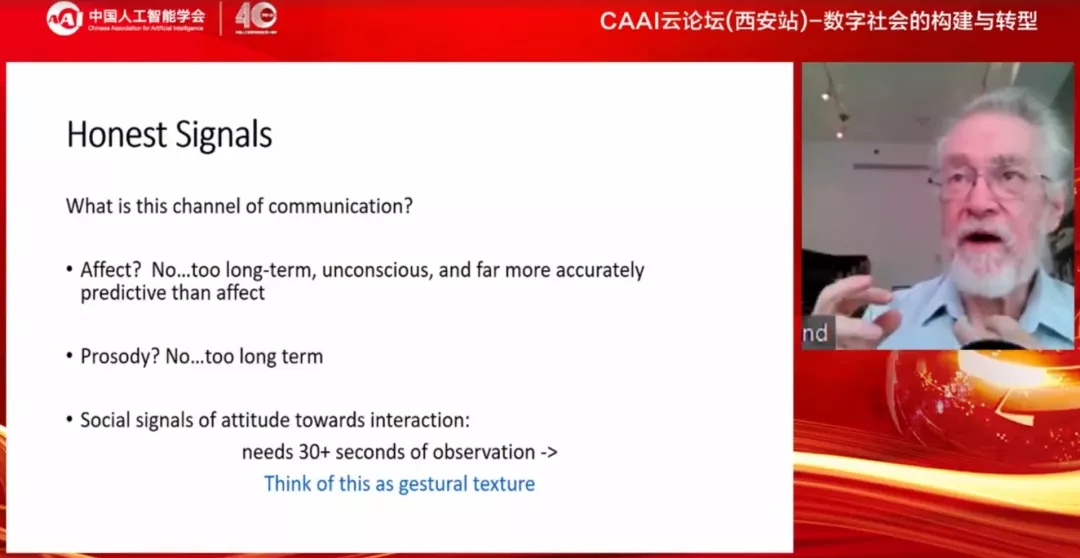
Alex Pentland
Academician of National Academy of Engineering
Professor of Media Arts and Science at MIT
"Honest Signals" written by Professor Alex Pentland has been translated by Professor Zhang Zike, and the Chinese version of "Honest Signals" has been published by Zhejiang Education Press in 2020. In the book, Pentland uses the wearable device "sociometer" to scientifically measure how "honest signals" in individual social contact and group communication emerge, flow, spread, and even influence decision makers, thereby helping us to reshape the decision-making modes of individuals, groups, organizations, and society in an all-round way.
Professor Bian Yanjie: Thoughts on the methods of the Combination of Empirical Spirit and Data
Professor Yanjie Bian first introduced the four basic empirical data forms that appeared in the nearly 200 years since Comte founded Sociology, namely case data, experimental data, survey data, and big data. Professor Bian Yanjie believes that despite the 5V characteristics of big data, it cannot replace the theoretical exploration role of individual cases, the rigorous proof of causality in experiments, and the overall inferences of representative sample survey on social behavior measurement and modeling results. Therefore, it must be organically combined with each other to better achieve the research goals.
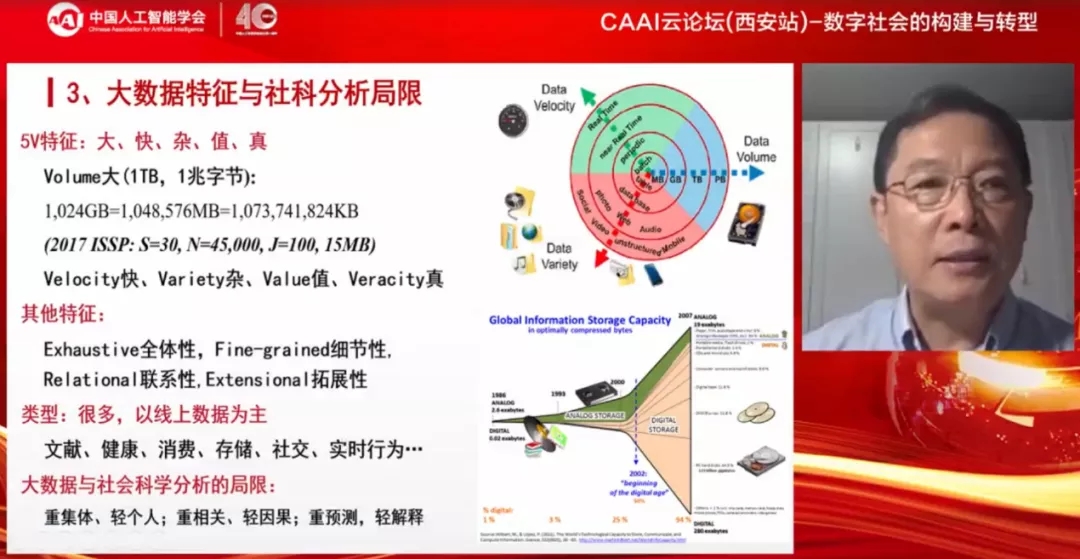
Bian Yanjie
Tenured Professor of Sociology, University of Minnesota
Leading Scholar Distinguished Professor of Xi'an Jiaotong University
Director of Institute For Empirical Social Science Research
Professor Bian Yanjie further condensed the three limitations of the application of big data to social science analysis. From this, and based on the four major functions of traditional data for social science research (problems, sampling, measurement, and theory), he proposed four ways of combining big data and traditional data, that is, substantive problems and big data, random sampling and big data, traditional measurement and big data measurement, and theoretical orientation and machine learning. The Institute of Empirical Social Science Research of Xi’an Jiaotong University, led by Professor Bian, Yanjie has continuously explored the combination of scientific empirical spirit, survey data and big data in recent years. Based on these four combined methods, a series of research results have been obtained.
Professor Fu Jianfeng: How can companies create social value more proactively in the digital society
Professor Fu Jianfeng pointed out that digital technology has been deeply integrated into all aspects of social development. This kind of mutual deep influence and interaction determines that when digital enterprises are considering their development, they can no longer simply consider commercial interests. Every small change in business rules and product rules of digital technology may lead to changes in social rules and even complex chain reactions. Professor Fu Jianfeng believes that in every product and technology change, every business model and service change, digital enterprises need to put social interests first. Only by rooting the company in the social soil and taking the initiative to create social value will it be possible to maintain its advanced and further development.
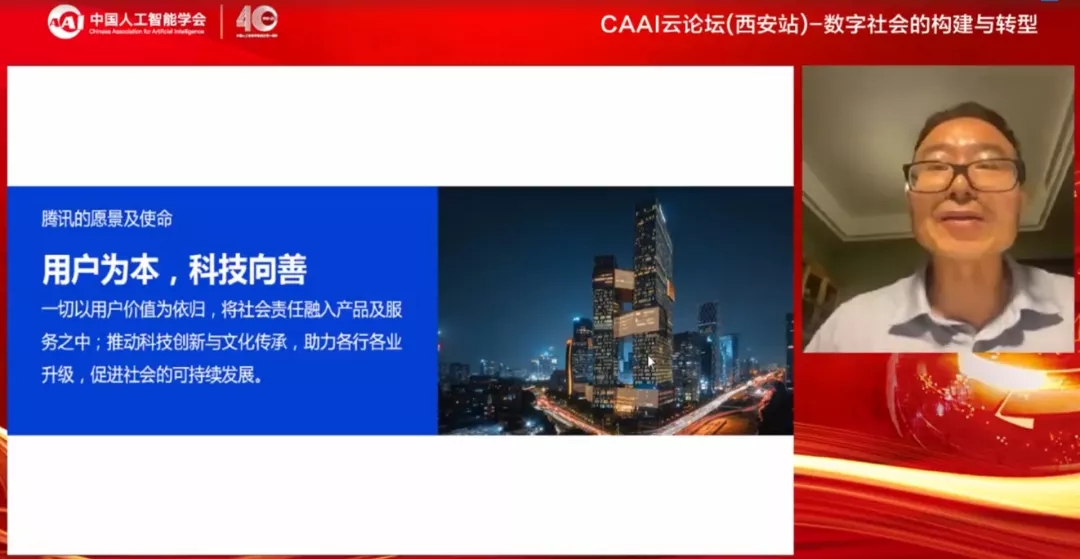
Professor Fu Jianfeng
Deputy Secretary-General of Tencent Charity Foundation
Director of Communication Department, Tencent Sustainable Social Value
Visiting Professor, School of Media and International Culture, Zhejiang University
Professor Fu Jianfeng gave a detailed introduction to Tencent's newly established Sustainable Social Value (SSV) and the sustainable social value innovation strategy that Tencent is actively implementing. Aiming at the major issues under the new development pattern, this strategy takes science and technology as its mission to explore high-quality and sustainable realization paths through technological innovation, product innovation, and model innovation to achieve the primary goal of sharing social values and enhancing social well-being.
Professor Zhu Jianhua: The use, misuse and abuse of "prediction" in social computing
Professor Zhu Jianhua focused on “prediction”, one of the most commonly used terms in computational social sciences, and analyzed this concept in detail, and clarified it into four specific types: estimating unknown value based on known data, verifying estimated value based on existing data, predicting future value based on past data, interpolating missing value based on similar data, etc.
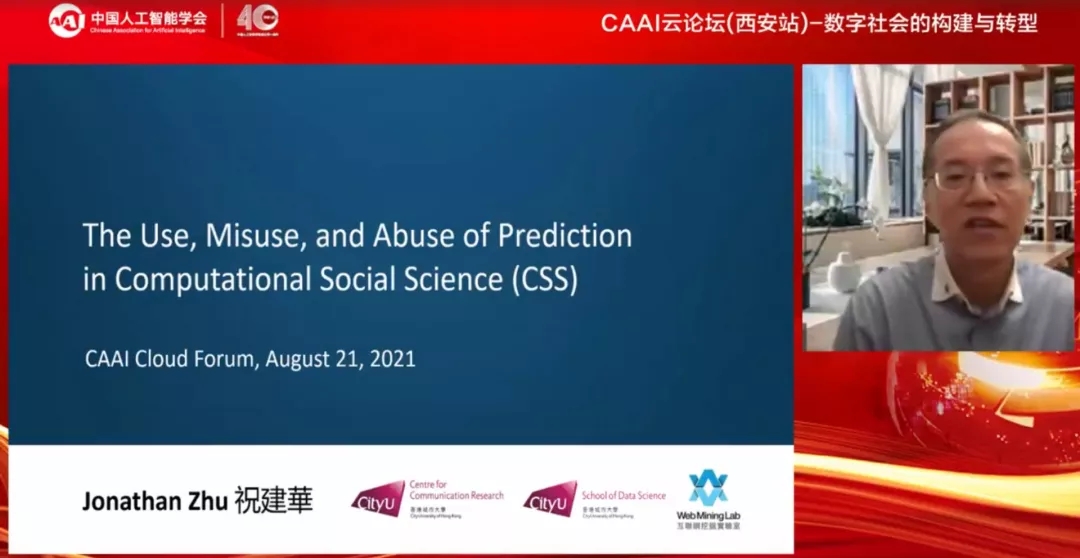
Zhu Jianhua
Chair Professor of Computational Social Science, City University of Hong Kong
ICA Fellow
Professor Zhu Jianhua pointed out that using prediction indiscriminately is not a trivial matter at the level of personal preference, and will cause unnecessary confusion in the definition of concepts. Professor Zhu Jianhua believes that it is particularly necessary to limit the use of this term as much as possible according to the exact nature of the research task and data, and suggests that computational social science researchers use more precise terms in future research, such as forecast, projection, validation explanation, imputation and other words, instead of using the word prediction, to avoid the problem of ambiguity.
Professor Ye Xinyue: Information diffusion and the spread of Covid-19, co-evolutionary reconstruction of multiple spatio-temporal networks
Professor Ye Xinyue proposed a multivariate network diffusion model to analyze the co-evolution of information diffusion and the spread of the new crown epidemic. He developed a two-stage compression sensing algorithm that can reconstruct the hidden multiple network structure from the observed infection data and the information dissemination data on the two types of media platforms. The reconstructed multi-network diffusion model can be decomposed into a cross-layer feedback subnets between information and popularity, and the intra-layer feedback subnet for information dissemination between traditional media information and emerging media information or on these two types of media platforms.
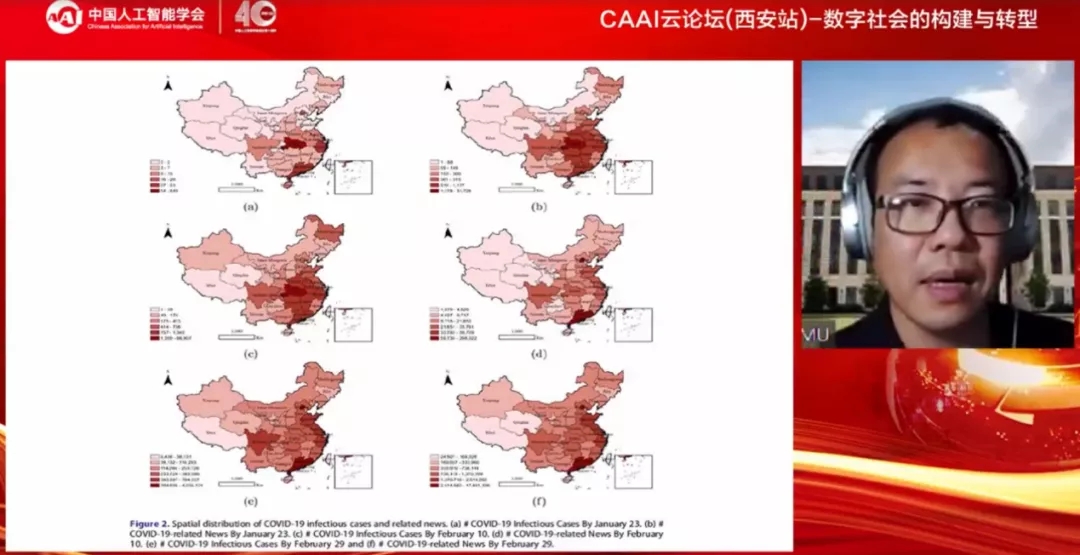
Ye Xinyue
Founding Director of the Urban Data Science Laboratory at Texas A&M University
Doctoral Supervisor of Department of Landscape and Urban Planning
Studies have found that information dissemination can be accelerated in a positive direction, or in a negative direction to decelerate the spread of an epidemic. Both of these influences are obvious, but they follow different spatial distributions and vary with the types of media platform. Emerging media is more heterogeneous than traditional media. The former has information dissemination effects on both platforms, while traditional media dissemination effects are very limited.
Digital Empowerment, Intelligent Enforcement,Rapidly drive the digital development of society
The society we live in is undergoing rapid digital transformation. Digital empowerment and intelligent enforcement have brought us greater imagination. The 2021 government work report also clearly pointed out: accelerate the development of digitalization, create new advantages in the digital economy, coordinate the promotion of digital industrialization and industrial digital transformation, and accelerate the pace of digital society construction. The national "14th Five-Year Plan" outline also fully demonstrates the beautiful vision of a digital society and a digital China.
In this context, this cloud forum focused on the frontier theme of "the construction and transformation of a digital society", hoping to help my country's economic and social digital transformation and high-quality development through academic exchanges, including discussing a series of basic, forward-looking and critical theoretical and methodological issues of the digital society from a multi-disciplinary and multi-dimensional perspective, fully anticipating the cutting-edge academic thinking and innovative corporate strategy of building a digital society, and discussing internal mechanism of social computing and society intelligence.
This article is contributed by the CAAI Social Computing and Social Intelligence Committee
- Government
- Association




